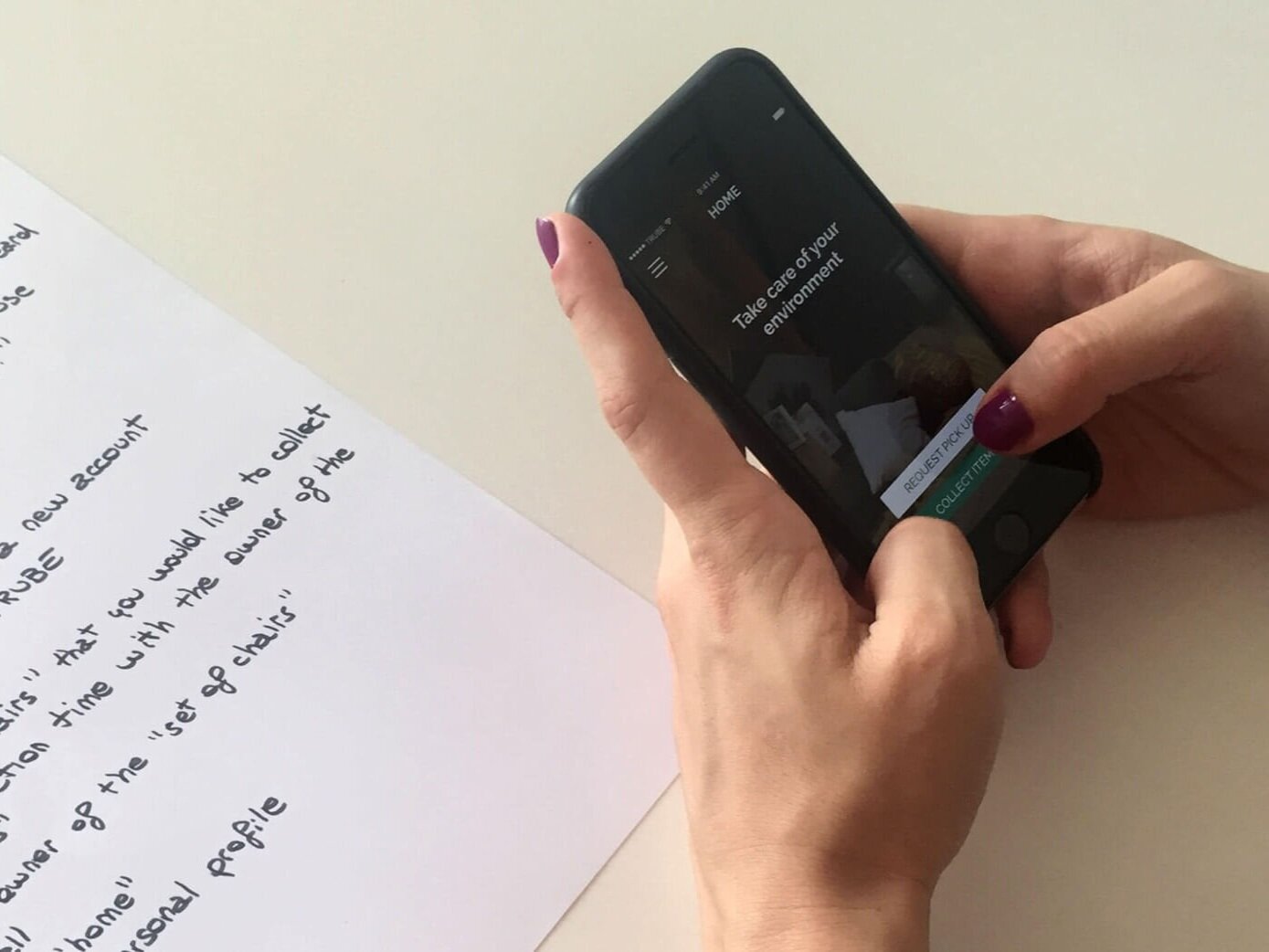Trube
Peer to peer collecting service that helps municipalities to keep clean streets, while providing citizens an easy and flexible system to get rid of bulky items.
ROLE
UX/UI Designer
COMPANY
Rotterdam municipality - Rotterdam, NL
YEAR
2017 (5 months)
RESPONSIBILITIES
Concept ideation || Design language || Consumer journeys || Flows and wireframes || Prototyping || Usability testing
Overview
In the Netherlands, the illegal dump of bulky items is a big problem due to poor collaboration between the citizens and the current collection system. This situation leads to larger costs to cover by the municipalities to remove products left on the street without any permission and without advising the collection service.
Bulky items illegally left on the street.
Challenge
Create a system that helps municipalities with bulky item collection, while providing an easy and flexible way for citizens to get rid of them.
Process
We used an agile and iterative process to work efficiently and effectively. We gathered insights from stakeholders, we interviewed citizens and collectors to identify (on both sides) the problems that were part of it. And then, we moved into design and prototyping to test and gather insights, while aligning with devs on the development side.
Iterative process
Discover
To get a better understanding of the topic and of the problem we needed to solve, we started gathering insights about the current situation from the Rotterdam municipality, we looked at competitors and similar peer to peer systems and we studied the system currently used by the municipality.
Current situation in the municipality of Rotterdam
Citizens POV. Scenario 1 (left column) is illegal, scenario 2 (right column) is the legal way.
Municipality POV. Scenario 1 (left column) when disposed illegally, scenario 2 (right column) when done legally.
Definition
Identified pain points, needs and opportunity areas to design against by creating and consumer journey maps.
Consumer journey map.
Design
Defined design direction, explored different ideas to discuss with stakeholders and created the information architecture based on KPIs.
Design direction
Create a community between inhabitants in neighbourhood that is motivated to keep streets clean safe and healthy.
Flow and architecture.
Explorative sketches.
Login and landing page design exploration.
Validation
We have created a functional prototype to test with consumers, validate and gather valuable inputs to iterate on.
Usability testing.
Solution
Trube is a peer to peer collecting service that provides municipalities clean streets and citizens an easy and flexible system to get rid of bulky items in a legal way. Trube focuses on the connectedness in the neighborhood and on the willingness of the citizens to keep their streets clean and tidy. The system focuses on facilitating a connection between providers and collectors, which are both citizens. It provides a platform to help citizens to get rid of bulky waste (providers), while paying a service fee to the ones who pick the item up (collector) and bring it to the recycling center.
Task flow for providers and collectors.
Provider flow.
Collector flow.














